Here is a list of what I consider to be the top 10 superfoods To boost our immunity as we age. They are all readily available so why not add some to your diet today.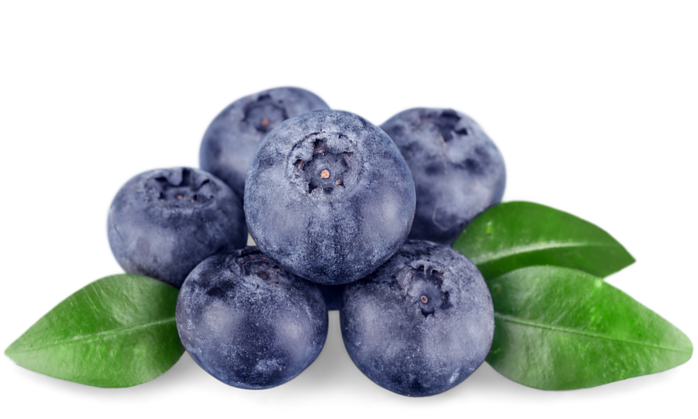
1.Blueberries: A Berry Powerful Immune Booster
Blueberries, those little spheres of goodness, are not just a treat for your taste buds; they’re also a powerhouse for boosting your immune system. As we age, our body’s ability to fend off diseases naturally diminishes. That’s where these nutrient-rich berries come into play. Packed with a variety of vitamins and antioxidants, blueberries are an ideal snack for those over 50 looking to give their immune system a natural boost.
Nutritional Profile
Blueberries are a true marvel of nature, especially when it comes to their nutrient content. Each berry is a treasure trove of antioxidants, notably flavonoids, which are renowned for their immune-boosting properties. These antioxidants combat free radicals, rogue molecules that can damage cells and contribute to aging and diseases. Moreover, blueberries are a great source of vitamins C and K, and they’re also rich in fiber. This fiber aids in digestion, another key aspect of maintaining a strong immune system, particularly for those in their later years. Remember, a healthy gut is a cornerstone of a robust immune response.
Immune-Supporting Effects
The science behind these delightful berries is as compelling as their taste. Research indicates that the antioxidants in blueberries can not only help reduce oxidative stress but also may enhance the function of immune cells. This is particularly beneficial for older adults whose immune systems need a little extra help. Furthermore, the high vitamin C content in blueberries supports various cellular functions of the immune system and helps in repairing tissues. It’s a classic case of nature providing exactly what our bodies need to stay in the fight against common illnesses.
Incorporating Blueberries into Your Diet
Integrating blueberries into your diet is both easy and enjoyable. Whether you prefer them fresh, frozen, or dried, these berries maintain their nutritional value in all forms. You can sprinkle them over your morning oatmeal, blend them into a smoothie, or just enjoy a handful as a nutritious snack. For a twist, try adding blueberries to salads or yogurts. They’re not just versatile; they’re also a testament to the fact that boosting your immune system can be as delicious as it is beneficial.
Conclusion
In the journey to enhance immune health, particularly for those over 50, blueberries are an invaluable ally. Their unique combination of flavor and nutritional benefits makes them a standout choice in your daily diet. By regularly consuming these antioxidant-rich superfoods, you’re not just indulging in a tasty treat; you’re actively contributing to your body’s defense system.
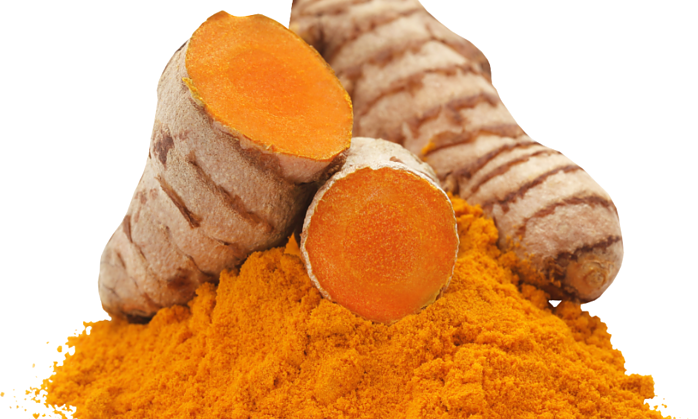
2. Turmeric: The Golden Spice of Immunity
Now, let’s turn our attention to a spice that’s been revered in traditional medicine for centuries: turmeric. This golden spice isn’t just for adding color and flavor to your curries; it’s a formidable ally for your immune system, especially as you navigate the complexities of health over 50. The secret to turmeric’s health benefits lies in its active compound, curcumin, which is a powerhouse for bolstering your body’s defenses.
Curcumin and Its Immune-Modulating Properties
Curcumin, the star component of turmeric, is celebrated for its potent anti-inflammatory and antioxidant properties. As we age, our body’s inflammatory response tends to get a bit out of hand, which can lead to various health issues. Incorporating turmeric into your diet can help keep this in check. Curcumin has been shown to modulate the immune system by balancing the response of immune cells, reducing the risk of overactivity that might lead to inflammation. This balancing act is crucial for maintaining a healthy immune system as we get older.
Turmeric’s Role in Reducing Inflammation
Chronic inflammation is a common concern for the over-50 crowd and can be a precursor to several health problems. Turmeric steps in as a natural remedy to this challenge. Its anti-inflammatory prowess is not just folklore; numerous studies have backed up these claims, demonstrating turmeric’s effectiveness in reducing inflammation. This can lead to improved immune function and overall better health. It’s a natural approach to tackling the silent issue of chronic inflammation, often lurking beneath the surface.
Integrating Turmeric into Your Daily Meals
Incorporating turmeric into your diet is surprisingly simple and can add a new dimension of flavor to your meals .Turmeric added to Indian curries gives a distinct flavor and a yellow colour. A sprinkle of turmeric in your morning smoothie, a dash in soups, or even blending it into a warm, comforting golden milk can make a significant difference. It’s not just about adding a spice; it’s about enriching your diet with an ingredient that carries a history of health benefits. And remember, combining turmeric with black pepper enhances the absorption of curcumin, making it even more effective.
Conclusion
Turmeric, with its unique properties and versatility, stands out as a superfood, particularly for those over 50 who are striving to maintain a robust immune system. Embracing this golden spice in your daily diet could be a small change that brings about substantial improvements in your immune health. It’s a spice that promises not just a burst of flavor, but a boost to your well-being.

1.Ginger: The Root of Immune Health
Ginger, with its distinctive flavor and warming sensation, is more than just a spice to pep up your meals. For those over 50, ginger is like a trusty friend for your immune system. This zesty root is packed with bioactive compounds and nutrients that have a profound impact on your overall health, especially when it comes to bolstering your immune defenses.
Health Benefits of Ginger
The first thing to note about ginger is its impressive arsenal of medicinal properties. This root is celebrated for its anti-inflammatory and antioxidative qualities. Gingerol, the main bioactive compound in ginger, is a true hero in fighting infections and inflammations. As we get older, these properties become increasingly important. Chronic inflammation can be a silent adversary for seniors, often leading to and exacerbating various health issues. Regular ginger intake can be a simple yet effective strategy to keep such concerns at bay.
Ginger’s Antiviral Properties
Ginger doesn’t stop at just being anti-inflammatory; it’s also known for its antiviral capabilities. This becomes crucial as our immune system gradually becomes less efficient with age. Incorporating ginger into your diet can help in enhancing your body’s defense mechanism against common viruses, especially during the cold and flu seasons. Plus, its natural warming effect is a bonus, soothing sore throats and providing relief from cold symptoms.
Incorporating Ginger into Your Diet
Integrating ginger into your daily routine can be both delicious and effortless. Start your day with a cup of ginger tea, a soothing beverage that can kickstart your immune system. Or, add grated ginger to your stir-fries, soups, or smoothies for an extra zing. Ginger is not just about adding a spicy kick; it’s about infusing your meals with an ingredient that’s synonymous with health and longevity.
Conclusion
Embracing ginger in your diet is like giving a natural boost to your immune system, particularly valuable as you step into the later years of life. This root, with its plethora of health benefits, proves that sometimes, the best remedies are those that have stood the test of time. So, as you enjoy the unique taste of ginger, remember you’re also nurturing your body’s natural defenses.

4. Spinach: Leafy Green Immune Strength
Spinach, the leafy green that’s not just for Popeye, is a veritable fountain of youth for your immune system, particularly in the over 50s club. This vegetable is more than just a salad ingredient; it’s a bundle of vitamins and minerals essential for keeping your immune system in top-notch condition. Let’s dive into what makes spinach a must-have in your diet for that immune-boosting punch.
Nutritional Breakdown of Spinach
Spinach is a nutrient powerhouse. It’s loaded with vitamins A, C, and K, magnesium, iron, and manganese. These nutrients play pivotal roles in immune function and overall health. Vitamin A, for instance, is crucial for maintaining mucosal barriers (like in your nose and throat), which are your body’s first line of defense against pathogens. Vitamin C, a well-known immune booster, is abundant in spinach. It helps in the production of white blood cells and antibodies, strengthening your body’s response to infections.
Spinach and Antioxidant Power
But that’s not all. Spinach is also rich in antioxidants, which are vital in fighting oxidative stress – a common issue as we age. Oxidative stress can lead to chronic inflammation and various diseases, making antioxidants an essential part of a senior’s diet. The flavonoids and carotenoids found in spinach, such as lutein and zeaxanthin, are particularly effective in this regard. They not only protect your cells but also may improve eye health, a bonus for those dealing with age-related vision changes.
Creative Ways to Enjoy Spinach
Incorporating spinach into your diet is both easy and versatile. It can be enjoyed raw in salads, steamed, or blended into smoothies. For a nutrient boost, try adding spinach to your omelets, pastas, or soups. It’s a simple way to enhance your meals with a leafy green that’s a silent warrior for your immune health. Plus, its mild flavor makes it a hit even for those who aren’t big on vegetables.
Conclusion
Incorporating spinach into your daily diet is a smart move for anyone, but especially for those over 50 looking to keep their immune system strong. This leafy green is a testament to the power of plants in promoting health and longevity. So, the next time you’re at the grocery store, remember to stock up on spinach – a simple, yet powerful tool in your immune-boosting arsenal.
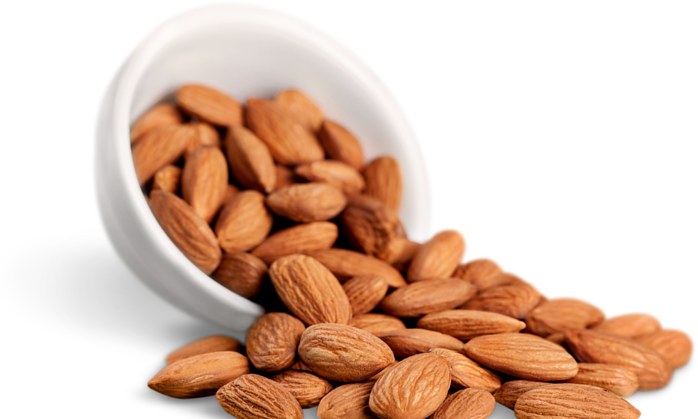
5. Almonds: Nutty Immune Enhancers
Almonds, the crunchy delights that are more than just a snack, play a starring role in immune system health, particularly for those in their golden years. These nuts are not just tasty; they’re a treasure trove of nutrients essential for maintaining a robust immune system. Let’s crack open the shell and find out why almonds should be a staple in your diet after 50.
Almonds as a Source of Vitamin E and Healthy Fats
First off, almonds are an excellent source of vitamin E, a powerful antioxidant that is crucial for maintaining a strong immune system. Vitamin E is particularly important for seniors as it helps combat the effects of aging on the immune system. It protects cells from oxidati8ve damage and supports the body’s natural immune response. Moreover, almonds are rich in healthy fats, primarily monounsaturated fats, which are beneficial for heart health. Keeping your heart healthy is a key part of ensuring your overall immune system is functioning well.
The Role of Vitamin E in Immune Function
Delving deeper into vitamin E’s role, it’s not just about protecting cells; it’s also about enhancing the function of T-cells, a type of white blood cell that plays a central role in immune response. As we age, our bodies’ ability to produce these vital cells diminishes, but vitamin E can help give this process a boost. Almonds, with their high vitamin E content, are an easy and delicious way to support this aspect of your immune health.
Snack Ideas and Almond-based Dishes
Incorporating almonds into your diet can be as simple as keeping a jar of them on your counter for an easy snack. You can also add them to your yogurt, oatmeal, or salads for an extra crunch. If you’re feeling a bit more adventurous, why not try almond butter on whole-grain toast or blended into smoothies? Almonds are not just versatile in the kitchen; they’re a testament to the fact that good health can be delicious.
Conclusion
So, next time you’re pondering over a healthy snack or looking for a way to boost your immune health, think almonds. For those over 50, these nuts are not just a snack; they’re a small, yet mighty tool in maintaining your health and vitality. They remind us that sometimes the simplest foods can be the most powerful in our wellness journey.
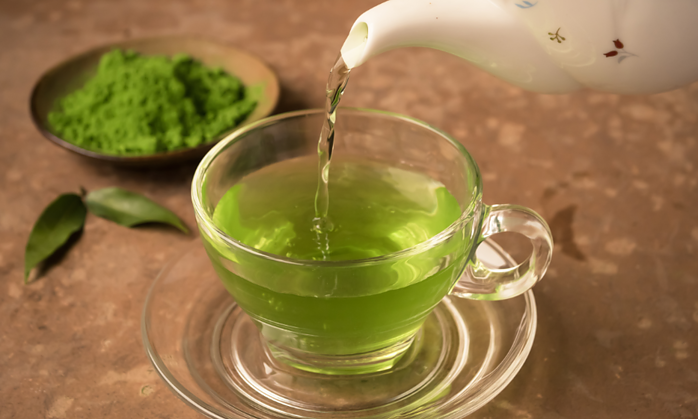
6. Green Tea: A Sip Towards Better Immunity
Green tea, the ancient brew that has stood the test of time, is not just a soothing beverage but also a formidable ally for your immune system, especially as you journey through your 50s and beyond. This light and refreshing drink is steeped in health benefits, thanks to its unique compounds. Let’s delve into why green tea should be a regular feature in your mug.
Catechins in Green Tea and Their Immune Benefits9
The secret behind green tea’s health benefits lies in its rich content of catechins, a type of antioxidant. These catechins, particularly epigallocatechin gallate (EGCG), have been shown to enhance immune function. They do this by protecting cells from oxidative stress and reducing inflammation – two common culprits that can weaken the immune system, particularly in older adults. Drinking green tea regularly can help fortify your body’s defenses against various pathogens.
Green Tea for Overall Wellness and Longevity
But the benefits of green tea don’t stop there. It’s also linked to improved heart health and enhanced brain function – two critical aspects of aging well. The antioxidants in green tea can help maintain the health of your blood vessels, reducing the risk of heart disease, a common concern for those over 50. Moreover, compounds in green tea have been associated with a reduced risk of cognitive decline. So, when you sip on green tea, you’re not just boosting your immune system; you’re supporting your overall wellness.
Best Practices for Brewing and Consuming Green Tea
To get the most out of green tea, it’s important to brew it correctly. Steeping it for too long or in water that’s too hot can make it bitter and reduce its health benefits. A gentle steep in slightly cooler water for a couple of minutes is perfect. You can enjoy green tea on its own, or with a slice of lemon to add vitamin C, which can further enhance its immune-boosting properties. Remember, moderation is key – too much caffeine, even from green tea, can be counterproductive.
Conclusion
Incorporating green tea into your daily routine is a simple yet effective step towards boosting your immune health, particularly important for those over 50. This ancient brew offers a subtle yet impactful way to enhance your body’s defenses, proving that sometimes the best health strategies are the simplest ones.
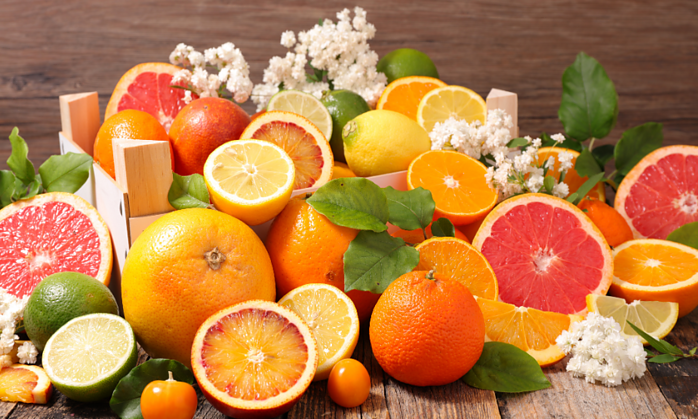
7. Citrus Fruits: Vitamin C Powerhouses
Citrus fruits, the colorful and zesty family of fruits, are not just a delight to the senses but also a boon for your immune system, especially as you venture past the age of 50. These fruits are famous for their high vitamin C content, a crucial nutrient for immune health. Let’s peel back the layers and explore why citrus fruits are essential in your diet for a robust immune system.
Variety of Citrus Fruits and Their Nutrient Profiles
From oranges to lemons, grapefruits to limes, each citrus fruit brings its own unique set of nutrients to the table. Vitamin C is the most well-known of these, vital for the growth and repair of tissues in the body and as an antioxidant fighting against free radicals. As we age, our body’s ability to combat oxidative stress diminishes, making vitamin C an even more critical component of our diet. Besides vitamin C, these fruits are also packed with flavonoids, fiber, and potassium, all contributing to overall health and a strong immune system.
The Significance of Vitamin C in Preventing Infections
The role of vitamin C in immune function is particularly noteworthy. It helps stimulate the production and function of white blood cells, which are key to fighting infections. Furthermore, vitamin C aids in the skin’s defense system, acting as a barrier against pathogens. This is increasingly important for older adults, as the skin’s ability to function as a protective shield can decrease with age. Regular consumption of citrus fruits can help fortify this first line of defense.
Delicious Ways to Enjoy Citrus Fruits Daily
Incorporating citrus fruits into your diet is both easy and enjoyable. A glass of fresh orange juice at breakfast, a lemon squeezed over a salad for lunch, or a grapefruit as an afternoon snack – the options are both delicious and varied. You can also zest up your dishes with citrus peels for added flavor and health benefits. Remember, while citrus fruits are a great source of vitamin C, balance is key, as they are also acidic and can affect tooth enamel if consumed in excess.
Conclusion
For those over 50, adding a daily dose of citrus fruits to your diet can be a simple yet effective way to bolster your immune system. These fruits, with their burst of vitamin C and other nutrients, underscore the principle that maintaining health can be as enjoyable as it is necessary. So, the next time you enjoy a citrus fruit, know that you’re doing more than pleasing your palate; you’re supporting your body’s defense system.
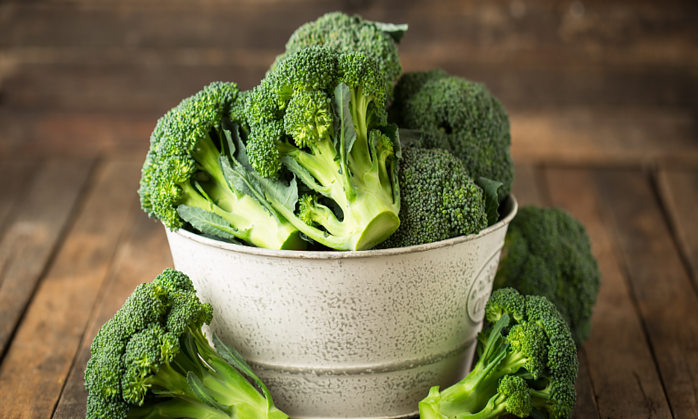
8. Broccoli: The Tree of Immunity
Broccoli, often resembling mini trees, is more than just a staple in healthy diets; it’s a superhero when it comes to boosting your immune system, especially in the later years of life. This cruciferous vegetable is loaded with a plethora of vitamins and minerals, making it an essential part of a diet aimed at bolstering immune health for those over 50. Let’s dive into the forest of benefits that broccoli offers.
Broccoli’s Nutrient Profile
Broccoli is a powerhouse of nutrients essential for immune health. It’s rich in vitamins A, C, and E, all of which are known for their immune-boosting properties. Vitamin A helps in maintaining the integrity of mucosal barriers (like the lining of your nose and throat), essential for protecting against infections. Vitamin C, as we know, is pivotal for the growth and repair of all body tissues and plays a key role in the immune response. Vitamin E is an antioxidant that helps combat oxidative stress and supports overall immune function. Furthermore, broccoli is a great source of fiber and contains a variety of antioxidants, including sulforaphane, which have been shown to have numerous health benefits.
The Role of Broccoli in Activating Immune Responses
Broccoli’s benefits extend beyond its nutrient content. This green vegetable is known for its role in activating immune responses. Studies suggest that the compounds found in broccoli can help stimulate the immune system, enhancing its ability to ward off illnesses. This is particularly important for individuals over 50, as the immune system naturally starts to slow down with age. Regular consumption of broccoli can provide the necessary boost to keep the immune system responsive and efficient.
Tasty and Healthy Broccoli Recipes
Incorporating broccoli into your diet doesn’t have to be a chore. It can be enjoyed steamed, stir-fried, or even roasted for a delightful crunch. Broccoli goes well in soups, casseroles, and salads, or can be simply enjoyed with a dip as a healthy snack. Its versatility in the kitchen makes it easy to add to your daily meals, ensuring you get your regular dose of immune-boosting nutrients.
Conclusion
Broccoli stands out as a key player in maintaining a strong immune system, particularly for those in their 50s and beyond. This nutrient-dense vegetable is not just about adding green to your plate; it’s about adding years of health to your life. So, remember to load up on broccoli – your immune system will thank you for it.
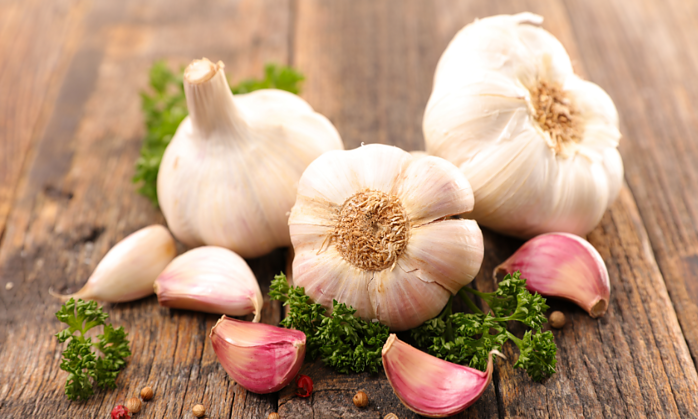
9. Garlic: Nature’s Immune Booster
Garlic, a staple in kitchens worldwide, is not just a flavor enhancer for your favorite dishes; it’s a potent ally for your immune system, particularly as you age past 50. This humble bulb, packed with unique compounds like allicin, has been used for centuries for its medicinal properties. Let’s peel back the layers to uncover the immune-boosting power of garlic.
Garlic’s Immune-Boosting Compounds
Garlic’s claim to fame in the health world largely revolves around allicin, a compound that forms when garlic is crushed or chopped. This compound is known for its potent anti-inflammatory and antibacterial properties, making it a valuable tool in fighting off infections. For older adults, this is particularly beneficial as the immune system tends to weaken with age. Regular consumption of garlic can help reinforce the body’s defenses, making it more efficient in combating illnesses.
Historical and Modern Medicinal Uses of Garlic
The use of garlic in medicine dates back thousands of years, with its benefits documented in various ancient civilizations. Today, modern science has backed up these historical claims with research showing that garlic can boost the function of certain immune cells and help lower the risk of common colds and other infections. Its ability to combat pathogens and support the immune system makes garlic a must-have in the diet of anyone over 50.
Incorporating Garlic into Everyday Meals7
Incorporating garlic into your diet is as easy as it is beneficial. It can be added to almost any savory dish for a depth of flavor and a health boost. From sautéed vegetables to soups, stews, and sauces, garlic’s versatility in the kitchen is unmatched. For those concerned about bad breath, odorless garlic supplements are also an option, although fresh garlic tends to have more potent health benefits.
Conclusion
Garlic, with its unique immune-boosting properties, is a simple yet powerful addition to your diet as you navigate the challenges of aging. Its ability to enhance immune function while adding flavor to your meals makes it a valuable ingredient in the quest for a healthier, more resilient body, especially for those over 50. So, don’t shy away from adding a clove or two to your next meal – your immune system will be all the better for it.
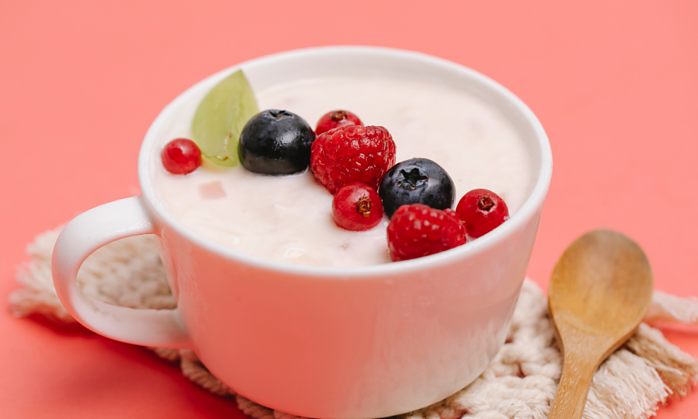
10. Yogurt: Cultivating Good Health
Yogurt isn’t just a delightful and versatile food; it’s a crucial player in maintaining a healthy immune system, particularly for those over 50. This creamy delight is loaded with probiotics, the friendly bacteria that play a vital role in gut health, which in turn is linked to overall immune function. Let’s spoon through the creamy layers of yogurt’s benefits for your immune health.
Probiotics in Yogurt and Gut Health
The star feature of yogurt is its probiotics. These beneficial bacteria are essential for maintaining a balanced gut microbiome, which is a central component of the immune system. A healthy gut microbiome helps in the efficient absorption of nutrients, which are critical for immune function, and also aids in the defense against harmful pathogens. As we age, our gut health can become compromised; thus, incorporating probiotic-rich yogurt into our diet becomes increasingly important.
Connection Between Gut Health and the Immune System
The gut is often referred to as the body’s second brain, and for good reason. A significant portion of the immune system is located in the gut. Probiotics in yogurt help strengthen the intestinal walls and support the immune cells within the gut. This not only helps in warding off gastrointestinal issues but also plays a role in preventing infections throughout the body. For individuals over 50, maintaining gut health is key to ensuring a robust immune system.
Choosing the Right Yogurt and Creative Serving Suggestions
Not all yogurts are created equal when it comes to health benefits. Look for yogurts that have “live and active cultures” on the label, as these contain the probiotics your gut needs. Greek yogurt is a great option as it’s higher in protein, which is also important for immune health. You can enjoy yogurt plain, or mix it with fruits and nuts for a nutritious snack. It’s also versatile enough to be used in smoothies, as a base for dressings, or as a healthier alternative to sour cream.
Conclusion
Incorporating yogurt into your daily diet is a tasty and effective way to support your immune system, especially as you age. It’s a testament to the fact that sometimes the most delightful foods can also be the most beneficial for our health. So, go ahead and indulge in that bowl of yogurt, knowing you’re doing something great for your body’s defense system.
Conclusion
I hope this list of my top 10 superfoods helps you out in creating a nutrition plan which will help you as you go into your 50s and beyond.
Best Regards John.
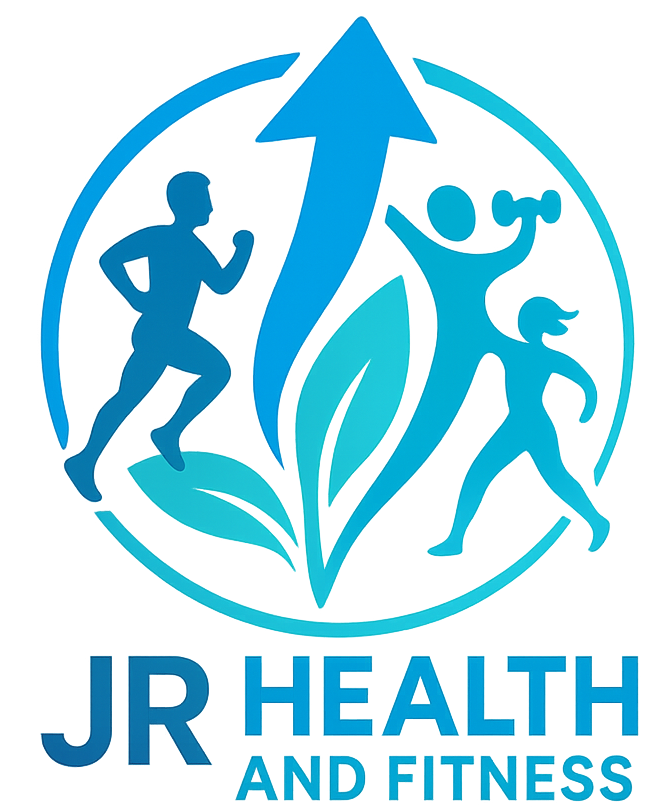
I just read your post and found it really interesting. I have personally experienced the benefits of adding foods like ginger and spinach into my diet, especially as I have gotten older (yes I am 52 already – time flies).
They have not only helped with my immunity but also make me feel more energetic. It is great to see these foods highlighted with such useful information.
Can I ask you, do you have any favorite recipes that include some of these superfoods? I am always looking to add more variety to my meals and would love some suggestions!
Thanks for sharing I really enjoyed the read!
Hi Chris these foods do boost your immunity recently my partner had a very contagious influenza a and I didn’t catch it so my immunity must be good. I haven’t had the flu in a long time. I am 65 and still fit and healthy.
I love making curries with a lot of garlic, ginger, turmeric and chilli that keeps the viruses away. For breakfast I have oats with blueberries and yogurt.
Thanks for commenting John